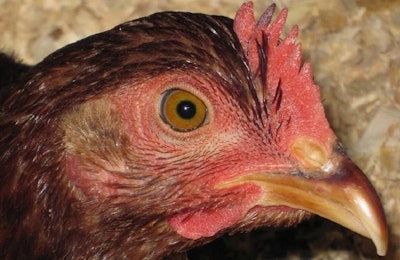
It was pleasing to the see that U.S. Senate Agriculture Committee held its hearing “A review of the U.S. Livestock and Poultry Sectors: Marketplace Opportunities and Challenges” on May 26.
Even more pleasing was that leaders from the National Turkey Federation (NTF) and United Egg Producers (UEP) were there to testify. But what impressed me most was that the leadership of that committee apparently listened and even agreed with the poultry industry spokesmen when they expressed their concerns about the current USDA Organic Livestock and Poultry Rule, and the agency’s haste when setting a date to end the comment period.
On April 7, the USDA’s Agricultural Marketing Service released a proposed rule calling for all livestock raised as part of its National Organic Program be given space to lay down, turn around, stand up, fully stretch their limbs without touching other animals or sides of the enclosure, and otherwise express natural behaviors. The proposed rule would establish new rules for the housing, transportation and slaughter of organic poultry.
The initial comment period is set to end on June 13.
Turkey industry concerns about organic rule
In his testimony, John Zimmerman, NTF board member, told the senators that the organization he was representing is concerned about the potential disruption to existing organic producers and their supply chains, as well as the impact the rule, if approved, could have on ensuring that animal health is fully protected.
“Before moving forward with the rule, the turkey industry feels that USDA should conduct a thorough assessment of the costs of compliance, increased animal health and welfare risks, and alternatives for existing organic grower so that producers and supply chains directly impacted by these changes will be minimally impacted,” Zimmerman said.
Egg industry seeks extension on comment rule
UEP Chairman Ron Truex, also the president of Indiana egg company Creighton Bros., asked the senators to encourage USDA to use common sense in regulating organic poultry practices.
“I am not personally involved in organic egg production, but a number of my fellow-producers are, and they are puzzled why USDA would want to take away consumer choice by restricting organic egg supplies. This proposed rule is a bad idea, not only for us but for other animal agriculture industries that would be affected,” he said.
Under the proposed rule, porch systems that allow organic hens access to the outdoor elements but under a protective roof, would no longer be allowed, Truex said. The proposed rule would also call for additional space per bird.
“With the stroke of a pen, USDA is proposing to ban previously-approved production systems and basically stipulate that only pasture-based systems are organic. This proposal would drive a majority of current organic production out of business. As a consequence, consumer supplies of organic eggs would be restricted, consumer prices would rise, and growth in organic egg demand would be sacrificed on the altar of ideological purity,” Truex testified.
Truex asked the committee to contact the USDA by not only filing comments, but also asking that the agency extend the comment period for an additional 60 days to better ensure that a final decision will be based on more complete facts.
Senate, House ag committee leaders agree extension is needed
On the same day the UEP and NTF leaders testified, a letter was sent to USDA urging the agency to extend the public comment period. It was signed by Senate Agriculture Committee Chairman Pat Roberts, Senate Agriculture Committee Ranking Member Debbie Stabenow, House Agriculture Committee Chairman K. Michael Conaway, and House Agriculture Committee Ranking Member Collin Peterson. (A similar hearing was also held by the House Agriculture Committee.)
However, instead of a 60-day extension as requested by Truex, the Congressional leaders asked for a 90-day extension.
“Our constituents have expressed significant concern regarding possible unintended consequences, including reduced access to organic products, substantially increased organic food costs for consumers, significant disruption to the organic feed and processed organic products industries, increased exposure to disease and mortality for organic poultry, increased risk of contamination or food-borne illness, and significant barriers for current organic producers to maintain organic certification,” the elected officials wrote. “We respectfully request additional time to ensure more thorough public comment on these key areas to inform your decisions prior to this rule moving forward.”

















